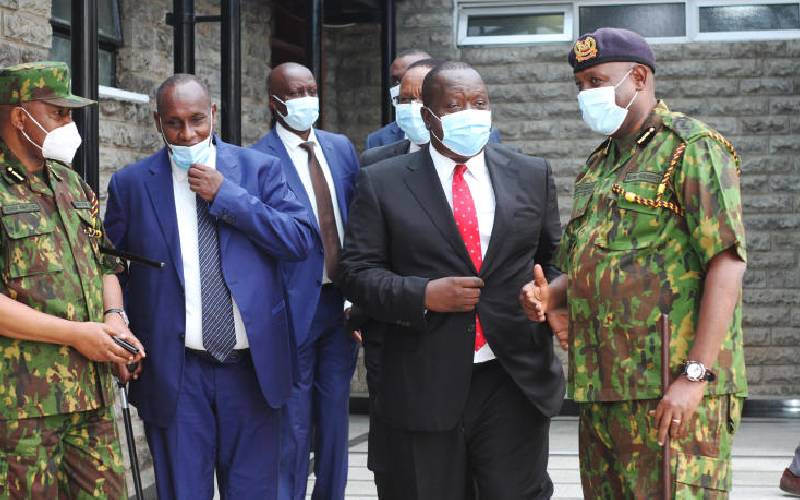×
The Standard e-Paper
Join Thousands Daily

Interior CS Fred Matiangi chats with Inspector General of Police Hillary Mutyambaii when he appeared before the committee regarding the provision of security services to the Deputy President. [Elvis Ogina,Standard]
Wednesday’s revelation by internal security Cabinet Secretary Fred Matiang’i on number of security officers attached to Deputy President William Ruto has lifted the lid on skewed police deployments in Kenya.